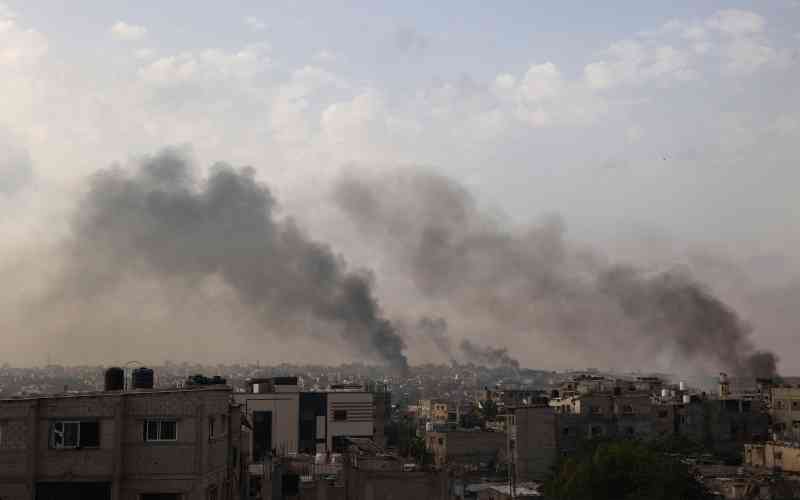×
The Standard e-Paper
Fearless, Trusted News

Israel again bombarded Gaza's far-southern Rafah area on Tuesday despite a global storm of outrage over a strike that set ablaze a crowded tent city, killing 45 people according to Palestinian officials.
The strike, which Gaza medics said also left hundreds of civilians with shrapnel and burn wounds, drew condemnation from world leaders and was set to be discussed at an emergency meeting of the UN Security Council from 1915 GMT.